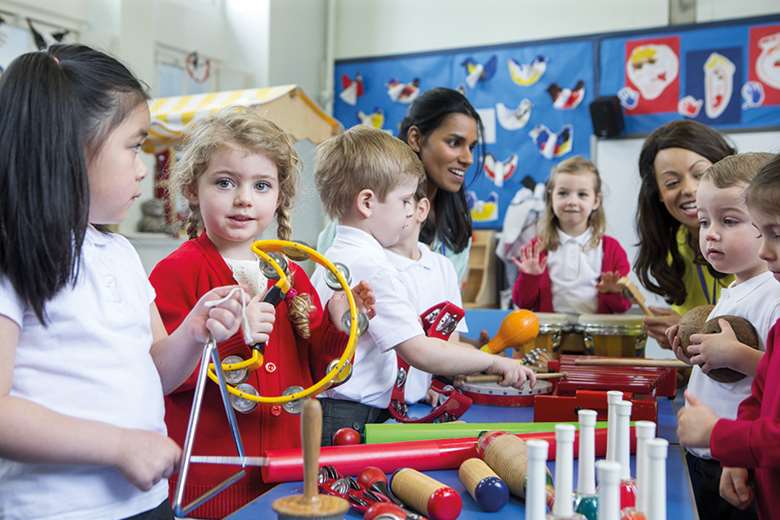Will reception test be beneficial?
Nick Brook and Nansi Ellis
Tuesday, April 24, 2018
The government is to develop a rating of pupils' ability when they enter reception, but experts disagree on whether it will be a good measure of schools' work and improve the education that children receive.

Nick Brook, deputy general secretary, school leaders' union NAHT
YES
There are potential benefits to introducing an effective baseline assessment at the point at which children start school. It is much better to measure school effectiveness by the progress children make, rather than their attainment alone - and to get an accurate measure of progress, we need some form of baseline.
Currently, the baseline to measure primary progress takes place at the end of Key Stage 1 (KS1). While a reception baseline presents a number of challenges, in principle, it is better to measure progress from the start of school than the end of KS1. It makes little sense to take a baseline measure for progress midway through the primary years at the end of Year 2. A measure that considers progress from the start to the end of primary school takes into account a child's whole primary journey.
The purpose of the proposed reception baseline must be transparent - it is a low-stakes assessment of a child's starting point, not a measure of what has come before. We have been explicit that the assessment must not be used as an accountability measure for early years, or to judge, label or track individual pupils, and the Department for Education agrees with these principles. If this is the case, we can see no reason why a baseline assessment in reception should change early years practice either prior to children starting school or in reception.
Importantly, a new baseline measure would mean that statutory assessment at the end of KS1 would become redundant. The alternative is retaining KS1 as the baseline. Progress measures are not going away, so the DfE has to have a measureable starting point to judge from. But it is unlikely that those KS1 assessments would be maintained in their existing form - instead, data from the statutory tests would simply be collected, and there would be a shift away from teacher assessment.
There are challenges to developing a workable baseline assessment. We will expect the DfE and Standards and Testing Agency to explain how the data will be valid and reliable for the purpose of creating a progress measure, having considered the range of factors which could impact on that, including the age of children.
If all the challenges can be met, a baseline assessment should give us a fairer measure of progress through primary, while leaving the rest of the time clear to focus on teaching and learning.
Nansi Ellis, assistant general secretary for education policy, the National Education Union
NO
If we believed the reception baseline assessment could work, then as a union that values evidence-based policy, we would not be as strongly opposed to it.
In 2015, the reception baseline assessment failed. The government said that having three different schemes meant that the data could not be compared. Research we commissioned from University College London suggested deeper problems, and raised serious concerns about the negative impact the policy could have on young children from specific groups.
Children doing the baseline assessment range from some who are only just four to others who are close to five, and a year's difference in age means a big difference in their life experience.
Our research showed that certain children were more likely than others to receive low scores in the assessment - children for whom English is a new language, have special educational needs or disabilities, or are born late in the academic year. These pupils risked being labelled as low ability and put into a progress system that expects children who achieve low results will achieve low results in future assessments.
Evidence shows it is hard for pupils and teachers to divorce expectations of pupils' progress from their understanding of that pupil's current level of knowledge and skill. So expectations might be permanently lowered for these pupils, or any pupil who scored low. While schools and teachers will continue to do everything possible to support and challenge pupils to make the progress they can, structurally this policy would condone low expectations and suggest that pupils had made "enough" progress when in fact they could make more.
Children who score badly at four because the test is in English - a new language to them - may progress rapidly once their English improves. Assuming these children have not been put off learning by their final year at primary school, their scores at Key Stage 2 could suggest that the school has had a huge impact on these pupils' progress. However, many children with complex special needs will not make this kind of progress.
Baseline is intended to assess schools' performance, yet these examples show that it does not actually measure what schools do.
Ofqual, the education select committee and two previous providers of baseline assessment have raised concerns. We believe the government should reconsider.




